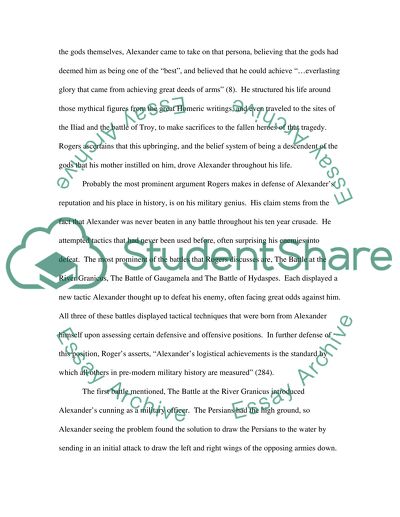Cite this document
(Alexander: The Ambiguity of Greatness Report Example | Topics and Well Written Essays - 1500 words, n.d.)
Alexander: The Ambiguity of Greatness Report Example | Topics and Well Written Essays - 1500 words. https://studentshare.org/history/1522736-alexander-the-ambiguity-of-greatness
Alexander: The Ambiguity of Greatness Report Example | Topics and Well Written Essays - 1500 words. https://studentshare.org/history/1522736-alexander-the-ambiguity-of-greatness
(Alexander: The Ambiguity of Greatness Report Example | Topics and Well Written Essays - 1500 Words)
Alexander: The Ambiguity of Greatness Report Example | Topics and Well Written Essays - 1500 Words. https://studentshare.org/history/1522736-alexander-the-ambiguity-of-greatness.
Alexander: The Ambiguity of Greatness Report Example | Topics and Well Written Essays - 1500 Words. https://studentshare.org/history/1522736-alexander-the-ambiguity-of-greatness.
“Alexander: The Ambiguity of Greatness Report Example | Topics and Well Written Essays - 1500 Words”. https://studentshare.org/history/1522736-alexander-the-ambiguity-of-greatness.


